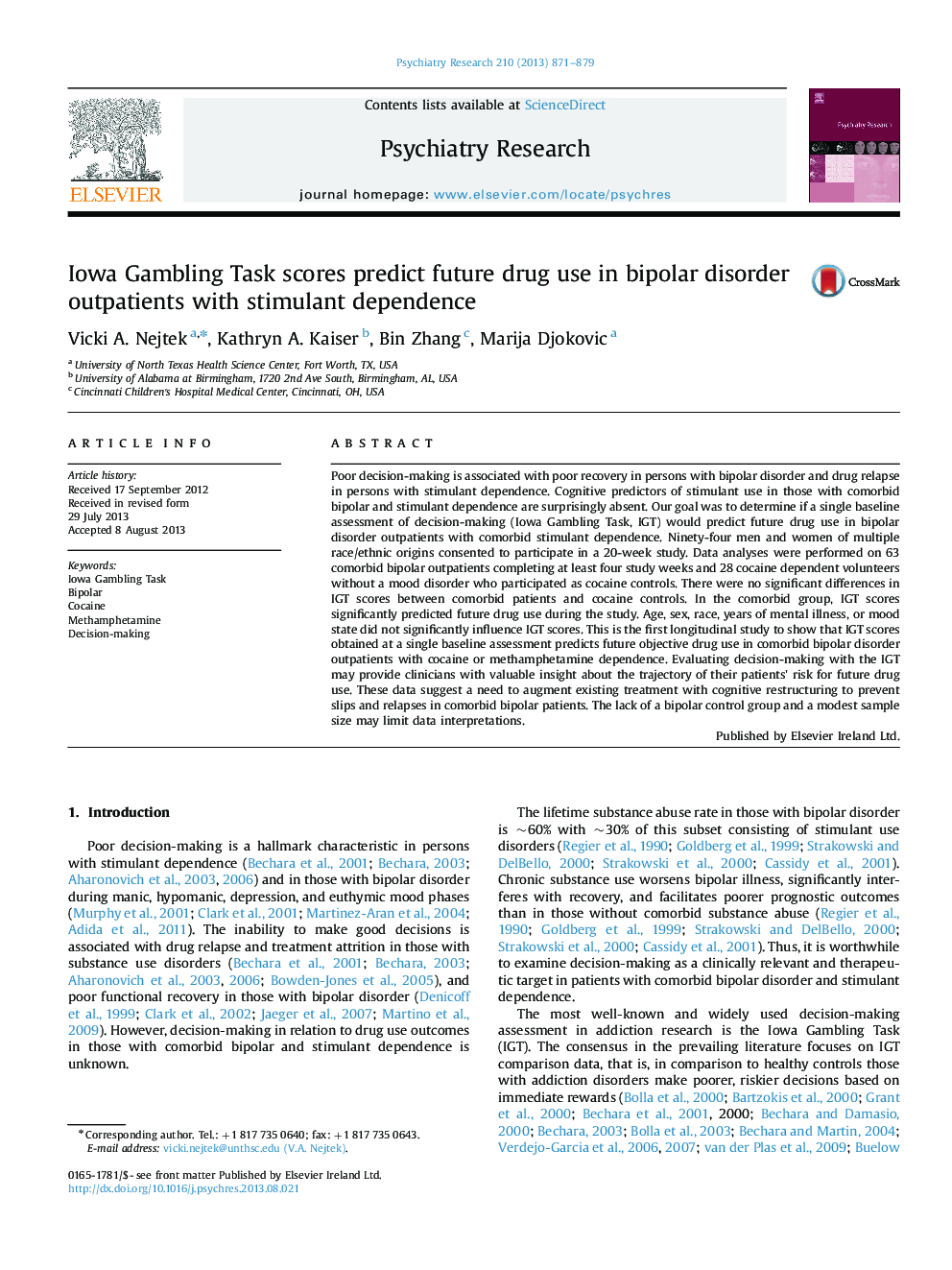| Article ID | Journal | Published Year | Pages | File Type |
|---|---|---|---|---|
| 6815387 | Psychiatry Research | 2013 | 9 Pages |
Abstract
Poor decision-making is associated with poor recovery in persons with bipolar disorder and drug relapse in persons with stimulant dependence. Cognitive predictors of stimulant use in those with comorbid bipolar and stimulant dependence are surprisingly absent. Our goal was to determine if a single baseline assessment of decision-making (Iowa Gambling Task, IGT) would predict future drug use in bipolar disorder outpatients with comorbid stimulant dependence. Ninety-four men and women of multiple race/ethnic origins consented to participate in a 20-week study. Data analyses were performed on 63 comorbid bipolar outpatients completing at least four study weeks and 28 cocaine dependent volunteers without a mood disorder who participated as cocaine controls. There were no significant differences in IGT scores between comorbid patients and cocaine controls. In the comorbid group, IGT scores significantly predicted future drug use during the study. Age, sex, race, years of mental illness, or mood state did not significantly influence IGT scores. This is the first longitudinal study to show that IGT scores obtained at a single baseline assessment predicts future objective drug use in comorbid bipolar disorder outpatients with cocaine or methamphetamine dependence. Evaluating decision-making with the IGT may provide clinicians with valuable insight about the trajectory of their patients' risk for future drug use. These data suggest a need to augment existing treatment with cognitive restructuring to prevent slips and relapses in comorbid bipolar patients. The lack of a bipolar control group and a modest sample size may limit data interpretations.
Related Topics
Life Sciences
Neuroscience
Biological Psychiatry
Authors
Vicki A. Nejtek, Kathryn A. Kaiser, Bin Zhang, Marija Djokovic,
